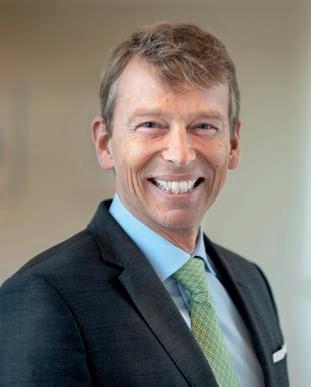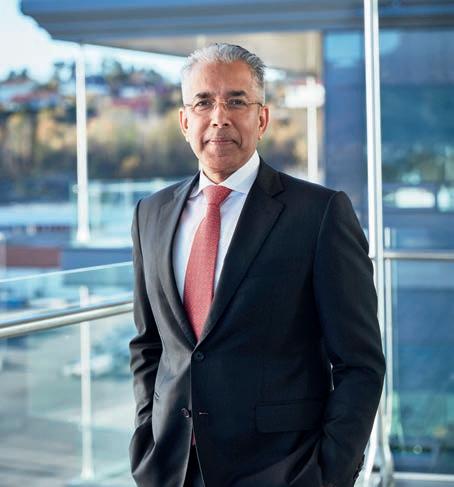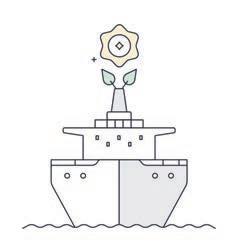
3 minute read
Collaboration for zero carbon solutions
ALFA LAVAL AND MÆRSK MC-KINNEY MØLLER CENTER FOR ZERO CARBON SHIPPING ANNOUNCED THAT THEY HAVE FORMALISED A STRATEGIC COLLABORATION ON THE DEVELOPMENT OF ZERO-CARBON SOLUTIONS FOR THE MARITIME INDUSTRY BY SIGNING A STRATEGIC CORPORATE PARTNERSHIP AGREEMENT BY WHICH ALFA LAVAL BECOMES AN OFFICIAL CENTER PARTNER.
ALL PHOTOS COURTESY OF ALFA LAVAL.
Advertisement
Søren Helmuth Jensen, Senior Vice President of Alfa Laval Marine Division.
The collaboraton will revolve around the development of low and zero-carbon technologies through joint projects and actvites including, but not limited to, the development of systems needed to handle new green fuels or solutons to improve overall energy efciency. It is expected that some joint actvites will be carried out at the Alfa Laval test facilites. The collaboraton is already operatonal through the recently announced SOFC4Maritme, a project targetng optmal utlisaton of future green fuels via the applicaton of SOFCs for power producton on marine vessels, funded by the EUDP.

A shared vision
Bo Cerup-Simonsen, CEO of Mærsk McKinney Møller Center for Zero Carbon Shipping, voices, “Decarbonising shipping requires a system change. This can only be achieved through comprehensive collaboraton across maritme and energy sectors. Alfa Laval shares our vision of a zero-carbon maritme industry and acknowledgement of the vast efort required to get there. In joining the Center, they bring onboard vital experience and knowledge enabling the Center to establish the overall narratve of the transiton, as well as initate projects and actvites that will accelerate the development of tomorrow’s soluton. We truly look forward to the collaboraton.”
Sustainable solutions
Sameer Kalra, President of the Alfa Laval Marine Division, states, “Collaboraton with industry experts like the Mærsk Mc-Kinney Møller Center for Zero Carbon Shipping is vital in achieving a shif towards more sustainable solutons. We need a common


Bo Cerup-Simonsen, CEO of the Mærsk Mc-Kinney Møller Center for Zero Carbon Shipping. Sameer Kalra, President of the Alfa Laval Marine Division.
view of the roadmap for the shipping industry, and we will bring our individual expertse to the table to drive and accelerate the development. One of the latest projects, SOFC4Maritme (for solid oxide fuel cells), is just one example of actvites that we look forward to working on together.” Mr Kalra will also be joining the Center’s Advisory Board, providing strategic and technical guidance to Center actvites going forward. “We are proud to join Mærsk Mc-Kinney Møller Center for Zero Carbon Shipping and look forward to working actvely with its team of competent partner companies. Innovatve collaboraton between marine experts is the clear way forward in achieving marine-adapted solutons. Working in partnership, we will realise solutons that pave the way for carbon-neutral shipping in a manner that is both practcal and economically viable”, says Søren Helmuth Jensen, Senior Vice President of Alfa Laval Marine Division.
Road map to decarbonisation
Global shipping accounts for around 3% of global carbon emissions, a share that is likely to increase as other industries tackle climate emissions in the coming decades. Achieving the long-term target of decarbonisaton requires new fuel types and a systemic change within the industry. Shipping is a globally regulated industry, which provides an opportunity to secure broad-based industry adopton of new technology and fuels. A coordinated efort within applied research is needed across the entre supply chain to accelerate the development of viable technologies. Industry leaders play a critcal role in ensuring that laboratory research is successfully matured to scalable solutons matching the needs of industry. At the same tme, new legislaton is required to enable the transiton towards decarbonisaton.
i. alfalaval.nl











